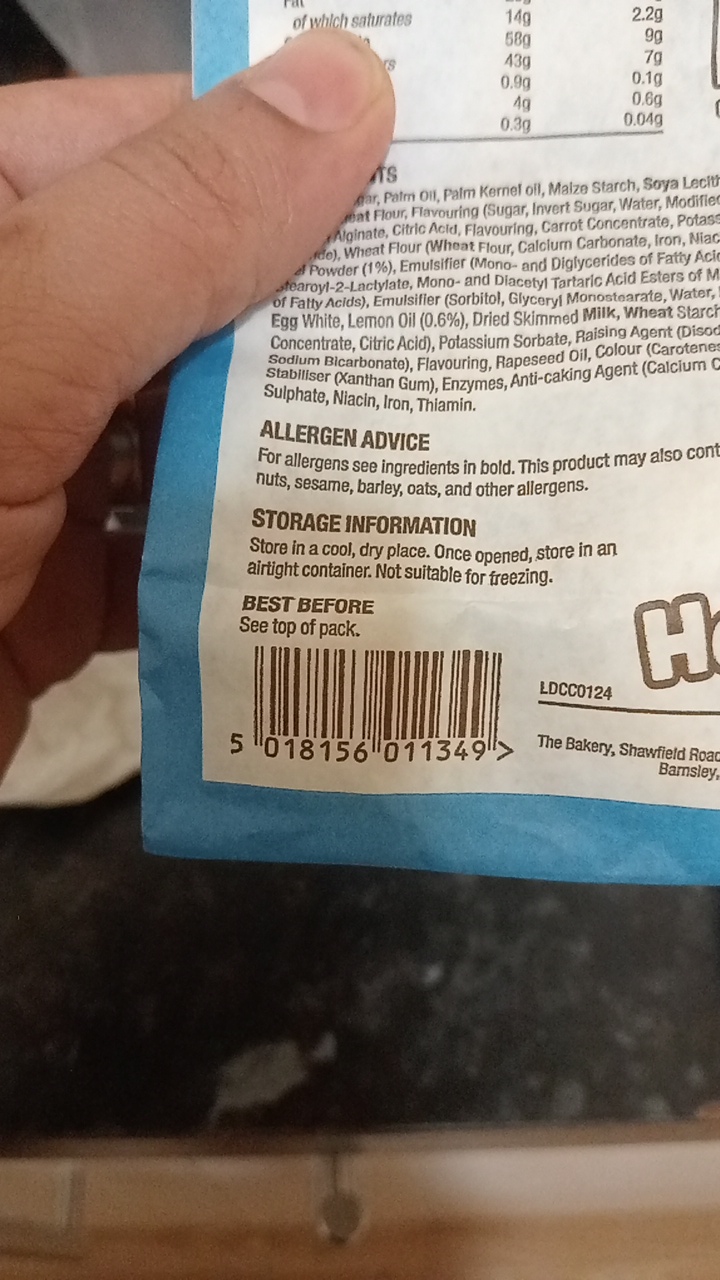
Barcode: 5018156011349
h
HALAL
📝 Reason: The product does not contain any Haram ingredients as per the provided lists. However, some ingredients are marked as Doubtful due to unspecified sources. It is recommended to verify the sources of these ingredients for complete Halal compliance. Islamic sources emphasize the importance of consuming only what is Halal and Tayyib (pure).
📄 Certificates: None
Ingredients:
Details
Understanding the Halal Status of Product ‘h’
This post aims to clarify the Halal status of the product ‘h’. According to the provided information, this product is classified as Halal. However, before consumption, it is essential to understand the ingredient composition and any uncertainties surrounding them for complete peace of mind.
Overview of Key Ingredients
The product ‘h’ contains various ingredients, including:
- sugar
- palm oil
- palm kernel oil
- maize starch
- soya lecithin
- wheat flour
- invert sugar
- water
- modified starch
- alginate
- citric acid
- carrot concentrate
- potassium sorbate
- calcium carbonate
- iron
- niacin
- thiamin
- raising agent
- emulsifier
- mono- and diglycerides of fatty acids
- egg white
- lemon oil
- dried skimmed milk
- concentrate
- rapeseed oil
Analyzing the E-numbers and Ingredients
While most of the ingredients in product ‘h’ are considered Halal, some have a dubious status due to unspecified sources. This section will delve into each ingredient and its Halal consideration.
- Sugar: Generally considered Halal unless contaminated with Haram substances.
- Palm Oil: Plant-derived and generally Halal.
- Palm Kernel Oil: Plant-derived and generally Halal.
- Maize Starch: Plant-derived and generally Halal.
- Soya Lecithin: Plant-derived and generally Halal.
- Wheat Flour: Plant-derived and generally Halal.
- Flavouring: This could be Halal or Haram since the source is not specified. It’s advisable to seek further clarification.
- Invert Sugar: Derived from sugar and generally Halal.
- Water: Generally Halal.
- Modified Starch: Plant-derived and generally Halal.
- Alginate: Derived from seaweed and generally Halal.
- Citric Acid: Typically produced from sugar, Halal by most standards.
- Carrot Concentrate: Plant-derived and generally Halal.
- Potassium Sorbate: Synthetic and generally considered Halal.
- Calcium Carbonate: Mineral-derived and generally Halal.
- Iron: Also mineral-derived and deemed Halal.
- Niacin: Synthetic or plant-derived, generally Halal.
- Thiamin: Synthetic or plant-derived, generally Halal.
- Raising Agent: Source is not specified, can be Halal or Haram; it’s recommended to check.
- Emulsifier: Also not specified regarding the source, hence its Halal status is uncertain.
- Mono- and Diglycerides of Fatty Acids: Source not specified, potential to be Halal or Haram.
- Glyceryl Monostearate: Details regarding its source are unclear, leading to uncertainty on its Halal status.
- Egg White: Generally Halal but ensure it is uncontaminated.
- Lemon Oil: Plant-derived and generally Halal.
- Dried Skimmed Milk: Generally Halal unless contaminated with Haram substances.
- Wheat Starch: Plant-derived and generally Halal.
- Rapeseed Oil: Plant-derived and generally Halal.
- Carotenes: Considered Halal as they are plant-derived.
- Xanthan Gum: Fermentation product, generally Halal.
Conclusion
The product ‘h’ is Halal based on its overall formulation. While some ingredients are marked as uncertain due to unspecified sources, the majority are derived from Halal sources. We encourage consumers to verify any doubtful ingredients with the manufacturers for ultimate assurance. The principles of consuming only what is Halal and Tayyib (pure) are paramount in Islamic dietary laws, and your attentiveness to these details will ensure you make informed decisions.

